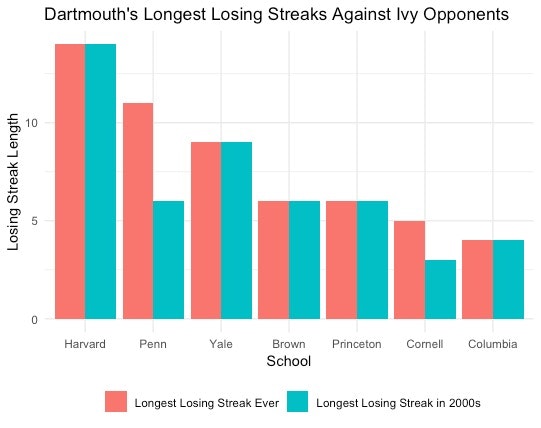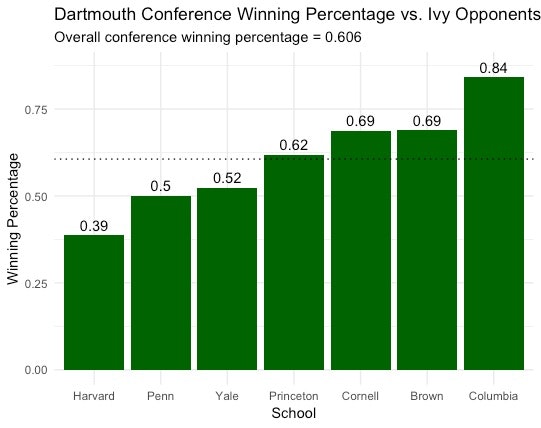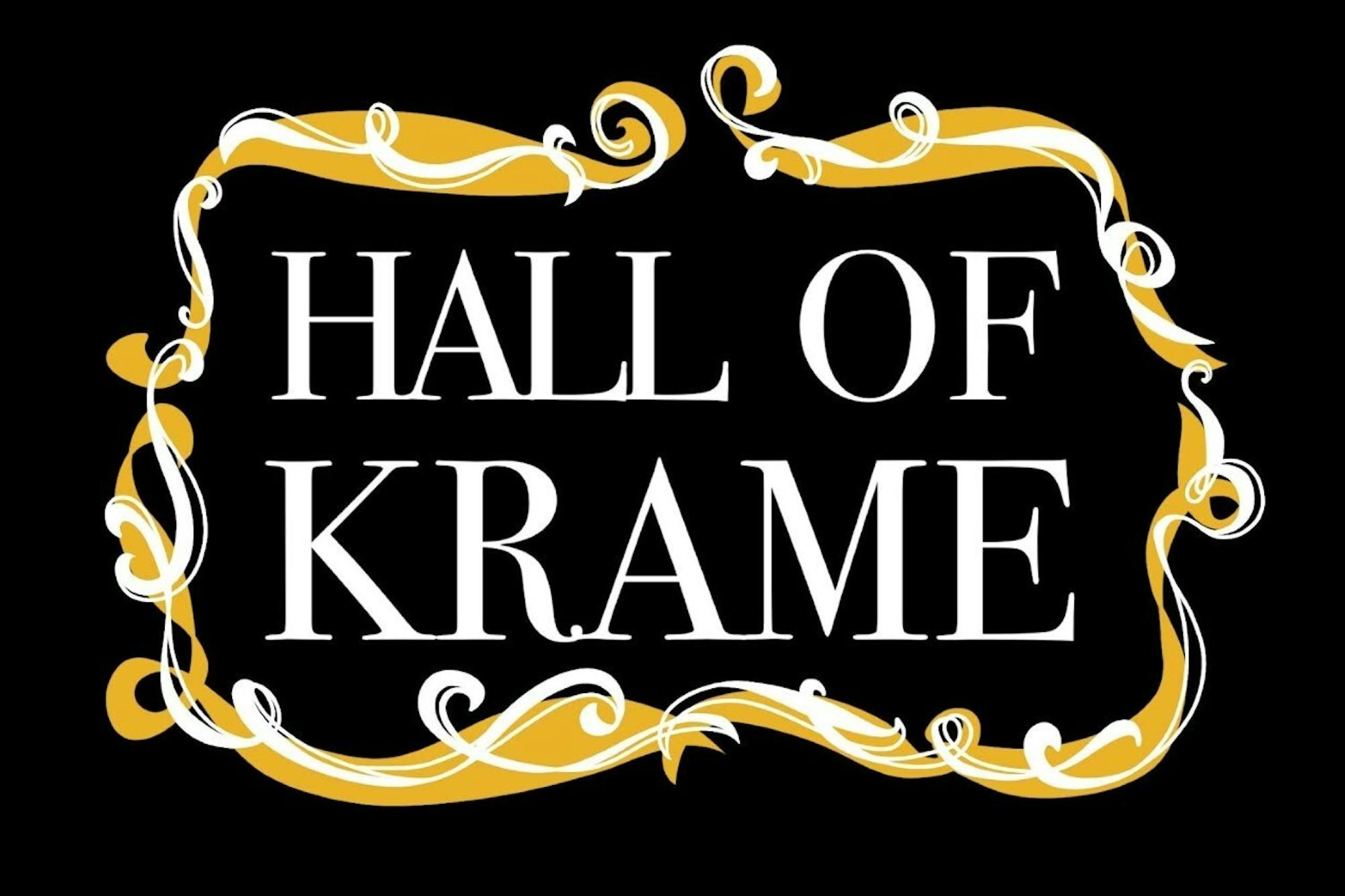When Dartmouth football takes the field in Cambridge, Mass. on Saturday, the Harvard University Crimson will have had almost two years to reflect on the “Harvard Heave,” a last-ditch, game-winning Hail Mary pass thrown by Derek Kyler ’21 to Masaki Aerts ’21 on Nov. 2, 2019, the last time the two teams squared off.
At the time, the miracle sustained Dartmouth’s undefeated record and delivered Harvard its second-consecutive loss of an eventual five-game losing streak, leading to the Crimson’s worst record since 1996.
The completion itself was miraculous. Kyler spun and stumbled around four Crimson defenders before launching a high-arcing 43-yard throw as time expired, and Aerts only caught the ball on a deflection after two Harvard defenders had position in front of him. The “Miracle in Cambridge” garnered Dartmouth rare SportsCenter Top 10 coverage and won the fan vote for The D Sports 2019-20 Moment of the Year.
But given Dartmouth’s history against Harvard the past two decades, the 9-6 win was a minor miracle on its own merits, irrespective of the final Hail Mary. A fan tuning in for the final minutes of the 2019 game might have thought luck was on the Big Green’s side against Harvard, but history says otherwise.
The win matched Dartmouth’s longest win streak against Harvard since 1995-96 — at only two games. Before its 2018 Homecoming victory, the Big Green had dropped 14 straight against Harvard and had not beaten the Crimson in Hanover in 25 years. For a team as historically successful as Dartmouth, which has posted only one losing season in the last decade, the 14-game losing streak to Harvard was unprecedented.

Dartmouth has not lost 10 or more games in a row to any other team this century, and their previous double-digit losing streak started against the University of Pennsylvania during World War II. Meanwhile, Dartmouth posted double-digit winning streaks against Brown University, Columbia University and Cornell University since then.
The Big Green’s 14-game spell of futility against the Crimson was the lowlight of a murky overall conference record against Harvard. Dartmouth’s 24-38-2 conference record against Harvard — even with a couple recent positive performances — represents its only losing conference record to any of its seven Ivy League opponents. The Big Green has a cumulative 244-136-7 record in conference play against its other six Ivy rivals, good for a .642 winning percentage.

Similarly, Dartmouth’s 2-8 record in its last 10 matchups with Harvard is its only losing mark against its Ancient Eight competitors — the Big Green is a combined 45-15 (.750) under the same metric versus its other Ivy opponents.
Much of Dartmouth’s difficulty against Harvard seems to come on the offensive end. Dartmouth has historically averaged just 15.22 points per game against Harvard, below their average against every other Ivy League school. As an aside, Dartmouth has averaged a whopping 25.84 points per game against Columbia, making their first shutout defeat in 10 years at the paws of the Lions last weekend all the more shocking.
Even in its most recent win in Cambridge, the Big Green barely scored nine points, and the year before that, Kyler and fellow quarterback Jared Gerbino ’20 combined for only 49 passing yards — the team’s fewest in 23 years — with just three second-half points despite the streak-snapping victory.
Headed into this weekend’s matchup, however, there are more reasons for optimism, even absent another miracle Hail Mary, despite Dartmouth’s historical struggles against Harvard. The Big Green is on the right trajectory, but its recent losses were heartbreaking. From 2013-2017, toward the end of its losing streak versus the Crimson, Dartmouth lost four of the five games by three points or fewer.
In 2013, with the losing streak already at nine games, a field goal with 48 seconds on the clock sunk the Big Green 24-21 after quarterback Alex Park ’14 threw an interception with 19 seconds left on the final Big Green drive. In 2015, with both teams 3-0 at the time, Dartmouth held a 13-0 lead with only seven minutes to play, but Harvard scored two touchdowns and blocked a game-winning 46-yard field goal attempt to win 14-13 and push the losing streak to 12 games.
“It wasn’t supposed to end this way,” The Dartmouth reported.
Dartmouth fell short again in 2016, losing its homecoming game against Harvard 23-21. With a chance down 25-22 to put an end to the streak in 2017, quarterback Jack Heneghan ’18 threw a tipped interception with just 1:14 left to clinch the Big Green’s 14th-consecutive defeat against the Crimson.
If the Miracle in Cambridge was any indication, it seems as though Dartmouth may have finally exorcised the Crimson spirits that have haunted the team for years despite its success against the rest of the league.
The Big Green has a chance this weekend to secure its first three-game winning streak against Harvard since the early 1980s. With both teams coming off their first losses of the season yet still in contention for an Ivy League title at 2-1 in the conference (5-1 overall), both teams will be desperate to get back in the win column as Dartmouth tries to hang another loss on its historic rival.




